On a long weekend, Monday is my Sunday. We were down in Maryland this weekend seeing a friend and got back late last night so we could spend all day packing up the house as we are moving to another place in Rockaway next weekend. Moving is difficult on so many levels, as our lives will feel chaotic for a couple weeks until we are “settled,” but our new home has beautiful light, space for my growing collection of dishes, big closets and I know we will be happy there.
Questions I’ve Always Wanted to Ask Lesley 🫘 ✨
Years ago I was introduced to Lesley Sykes, the founder of one of my favorite small businesses, Primary Beans. As I’ve learned to appreciate and love beans as part of their Bean People Membership I wanted to take some time to get to know more about her and what it’s like founding and running her “dream business” as she calls it.
Lesley worked in fresh produce and supply chains for over a decade. Her upbringing on the US-Mexican border gave her a deep appreciation for beans early on. Lesley studied nutrition in college and food sustainability in graduate school and is a passionate home cook. So when the opportunity arose to build a bean brand - the perfect food from a nutritional, culinary, and planetary perspective - she took it :)
How did you wind up starting a bean company? 🫘 ✨
I always knew I wanted to create something of my own, but wasn't sure what until I fell in love with cooking beans at home.
When my partner, Dylan, and I moved in together almost a decade ago he brought his Instant Pot to the relationship and I was terrified of it for months. But eventually I discovered the ease of making grains in it and then beans! Beans have since become our favorite thing to cook at home - usually prepared simply in their broth, with lots of olive oil, flaky salt, lemon, and crusty bread. I feel good when I eat them and know that they're a key component of crop rotations and building healthy soils.
Around the same time, I was working for a company that specializes in sustainability-type certifications, and I was on a work trip with a mentor, Jim. A fellow bean enthusiast, he told me all about how countries that eat beans regularly value freshness for flavor reasons and that beans available outside of the US tend to be fresher because they have a higher turnover rate. In the US, beans tend to be grown and treated as a commodity and can sit for a very long time before reaching grocery store shelves. That's why beans seem to taste so much better abroad. That really stuck with me.
Later, at an organic agriculture conference, I met my first farm partner, Armando. We talked about all the incredible regional varieties grown in his home state of Zacatecas, Mexico, that rarely make it on grocery store shelves. I really value the work of farmers and love working with them, so that did it for me: if I could draw on my unique background to create a network of like-minded bean farmers and offer home cooks super fresh, regional beans, maybe more people would be excited to cook beans at home.
I'm really close with my sister, Renee, and when I told her about it, she agreed to help launch the company with her incredible artistic and graphic design skills.
What has surprised you most about beans? 🫘 ✨
How they're thought of at the retail level. I realize I'm biased, but for something as nutritious and tasty as beans, beans are far too often an afterthought and expected to be cheap. Plus, there is no requirement for a “best by” date on dry beans which I find so crazy since beans definitely have a shelf life (the longer they sit, the more moisture and flavor they lose and the longer they take to get tender). My dream partnership is with a retailer who is willing to partner with Primary Beans on innovative merchandising - perhaps in the fresh produce department alongside aromatics with the harvest date front-and-center.
What is growing specialty beans like for the farmers you work with it? Is it true they grow all year and only harvest at the end to dry them? 🫘 ✨
Beans take about 100 days from seed to harvest (can be more or less depending on the variety). The plants are usually cut when the plants and pods have dried and turned golden. The timing is important because the pods need to be damp (from a rain or morning dew) so they’ll be tough when the plants are cut. Otherwise, if the pods are brittle, the beans will spill to the ground and can't be salvaged. The plants are then typically formed into piles to further dry before they are threshed (aka beans are separated from the pods and plant matter).
After the beans are threshed they need to be cleaned, removing plant debris, stones, and any broken or discolored beans. Smaller operations will typically clean them with an air based machine, followed by (very labor intensive) manual sorting. Larger operations may have access to more sophisticated mechanical cleaners and optical color sorters, either on-farm or via a third-party. These machines usually require a certain amount of volume, which is why small batches are usually cleaned by hand.
While rare, whenever I receive an email with a complaint about finding a stone in our package, I try to use it as an opportunity for education. Sort through your beans at home, and remember, they are a product of agriculture!
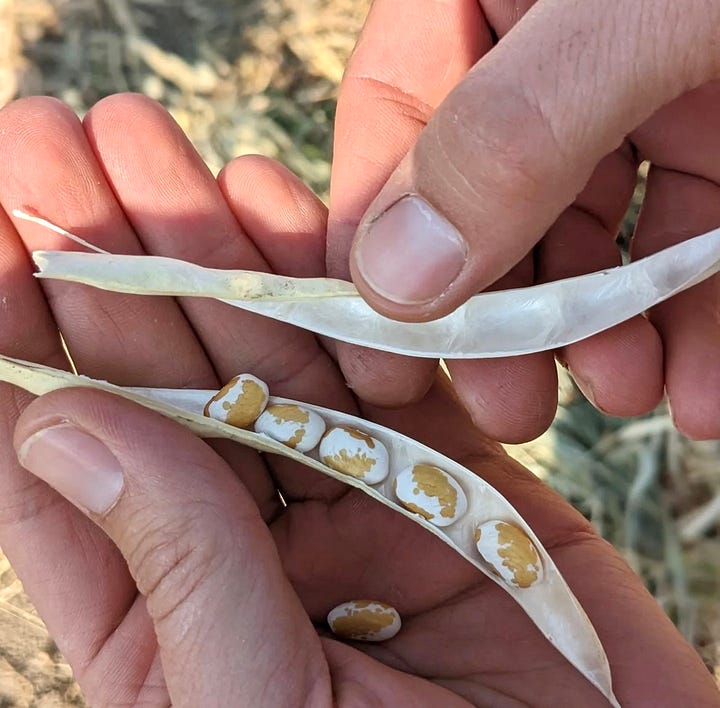
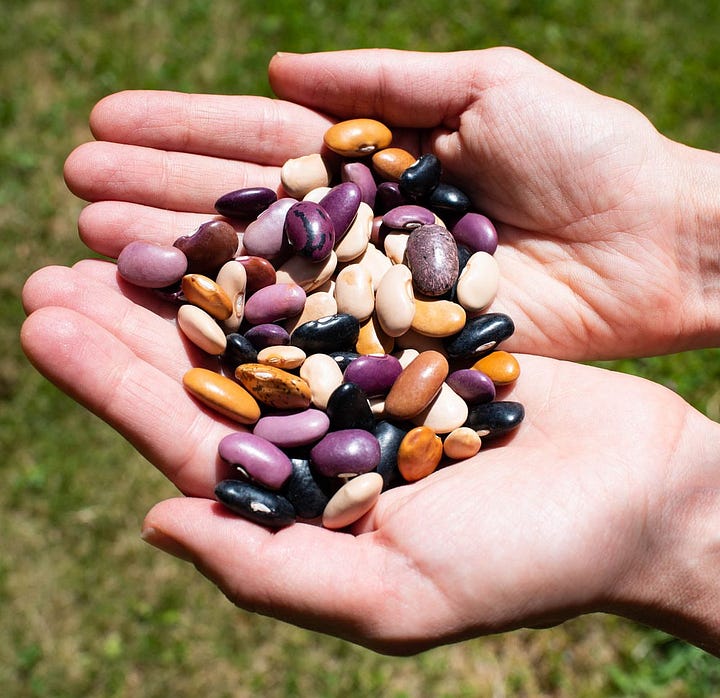
What is the growing cycle like for your supply chain - are all the beans harvested at once and then they have to last the rest of the year? 🫘 ✨
That's exactly right. I have one shot to plan for the entire year with the hopes that I won't have too many beans left over, or a long stretch without any product. It's mostly worked out beautifully, but we normally rely on an annual harvest sale to help make room for the next crop.
What is the most challenging part of getting people to eat more beans? 🫘 ✨
Convincing people that beans are one of the easiest, most satisfying meals you can prepare at home! Contrary to popular belief, beans don't actually need to be soaked ahead of time. Soaking is only really necessary if you're trying to revive old beans. Some people prefer it so the beans take less time to cook, to partially reduce the gas-producing compounds, or so the beans cook more evenly, but generally I’ve found that soaking is unnecessary and a barrier to cooking beans regularly. So, we took a bold stance about soaking (“beans so fresh you don't need to soak them”) and so many people have contacted us about this realization being a game changer. We also get the occasional angry email - it turns out bean cooking is a heated topic.
Do you envision one day beans will be a common center of the plate protein just like meat? 🫘 ✨
In some ways, it's already happening. Like me, so many people in my circles are conscious meat eaters. They eat meat in small amounts from trusted sources, to flavor beans and other meals, or for a special occasion. I realize this doesn't represent what the masses are doing but it's a huge step forward. So many people are seeking ways to reduce their meat intake - whether it be for health and/or environmental reasons - and my hope is that more people turn to beans as the long-term solution and not processed alt-based meat, which only steers us further from the source of our food.
Anything you’re particularly excited about happening this year you can share ? 🫘 ✨
I'm really excited to expand our farmer network and offer some new varieties that are truly regional gems (coming soon!). I've had 2 children since launching Primary Beans in 2020 and it's been a wild ride. I haven't necessarily been able to accomplish all that I would have been able to otherwise but I've learned to be okay with that because it's all a learning process and this is my journey. I do have big dreams for the years to come - the parent company name is Primary Provisions for a reason 😉.
Gems of the Week 💎

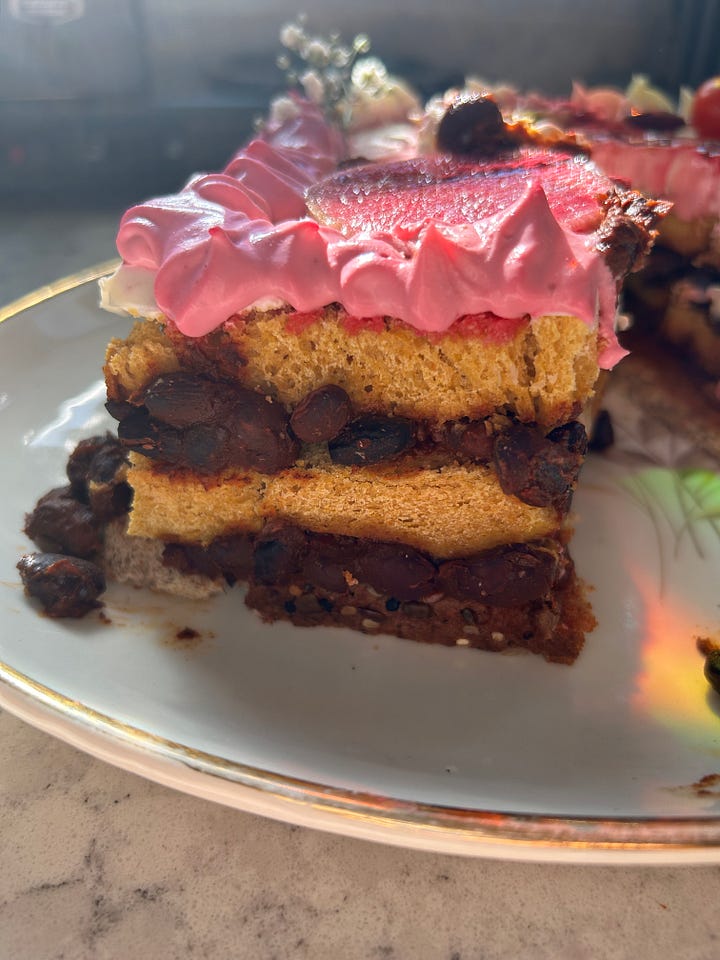
I made a savory cake with a Heyday Bean filling, cream cheese frosting, tomato hearts and beet powder creme fraiche! I love seeing all the stunning cakes on my social media feed but don’t love to make super sweet things so thought I would try this out.
Palestine’s Seeds in Diaspora by Atmos
A recent This American Life episode - The Question Trap -had me sobbing in the best way
- recent newsletter on Beans to Eat for Breakfast
I was introduced to Acid spirits at a Culinary Industry Night event - Acid is an experimental spirits company focused on up-cycling, locality and seasonality.
I met Omer Kaplan at an event recently who was taking some headshots of people for fun. Sharing one of his shots and if you are looking for a photographer, check out his work!
Recipes to Try 🫘 ✨
I encourage everyone to order beans from Primary Beans that can be purchased through their website or Amazon. They provide all sorts of cooking instructions and excellent recipes - a great follow on social media.
I can highly recommend this Mole Bean Chili I made last month as well as this Marinated Bean Salad with Feta and Mint 🫘 ✨
I used this mole from the grocery store and didn’t end up using mushrooms but loved the deep flavor of the fresh beans and mole.

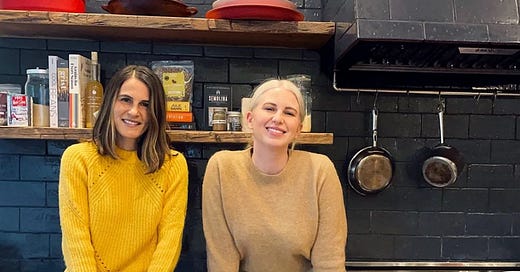



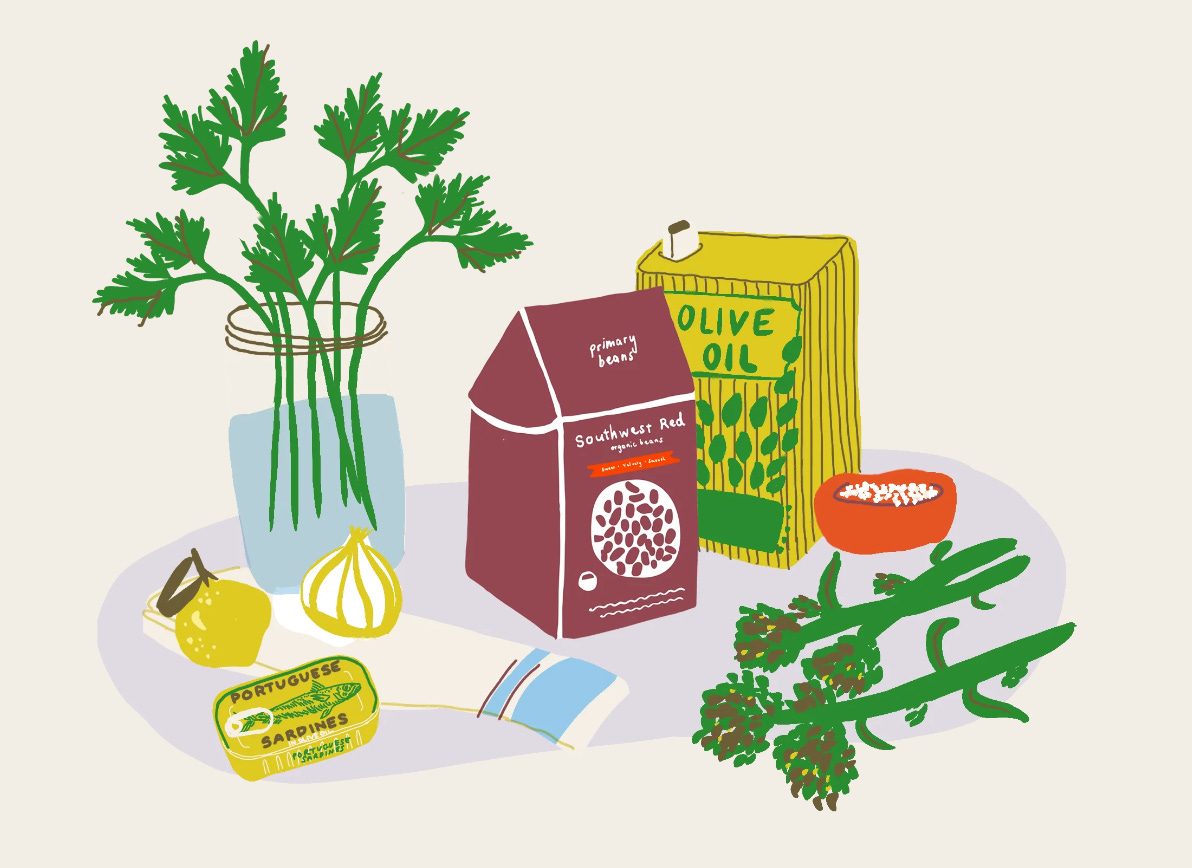

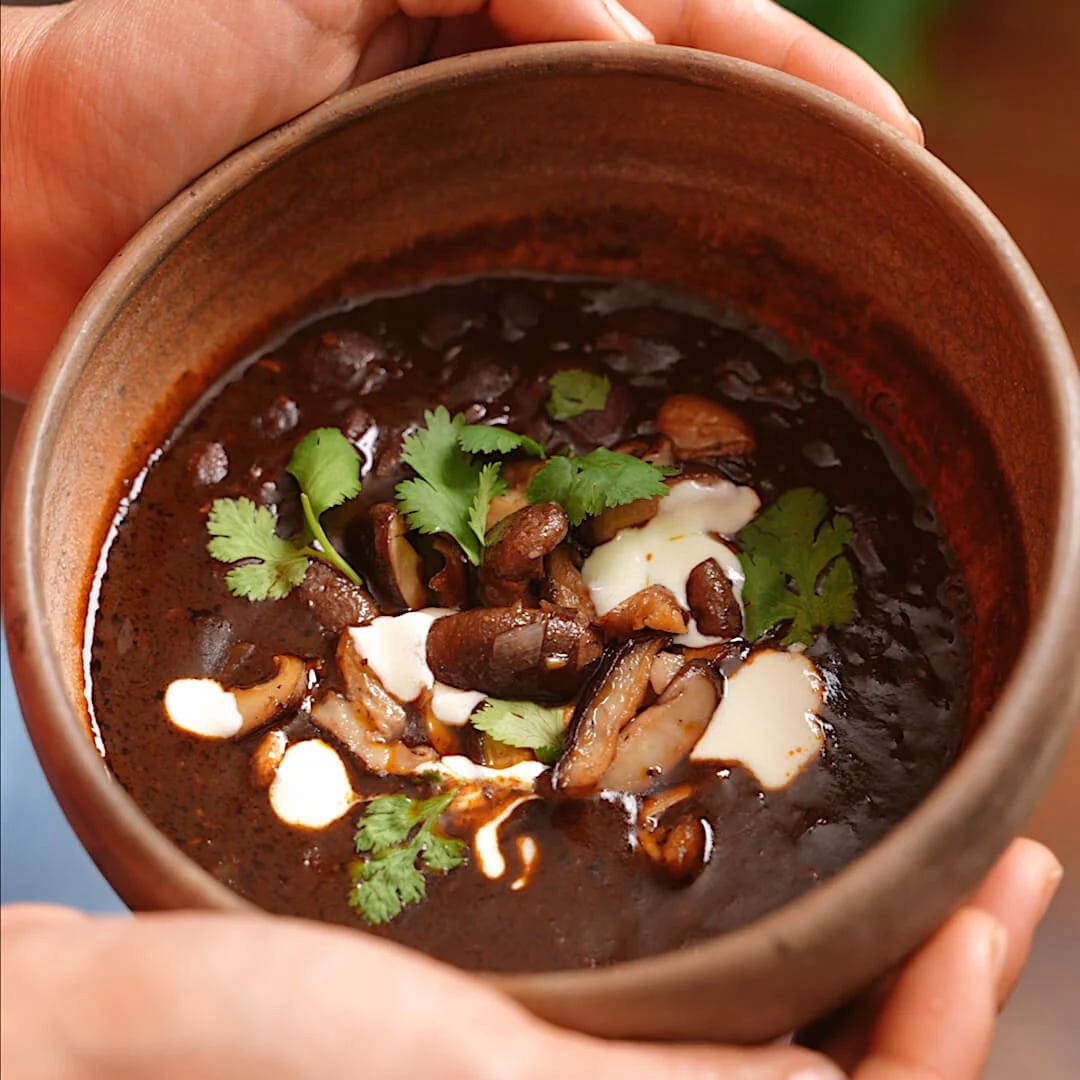
love the head shot 💫